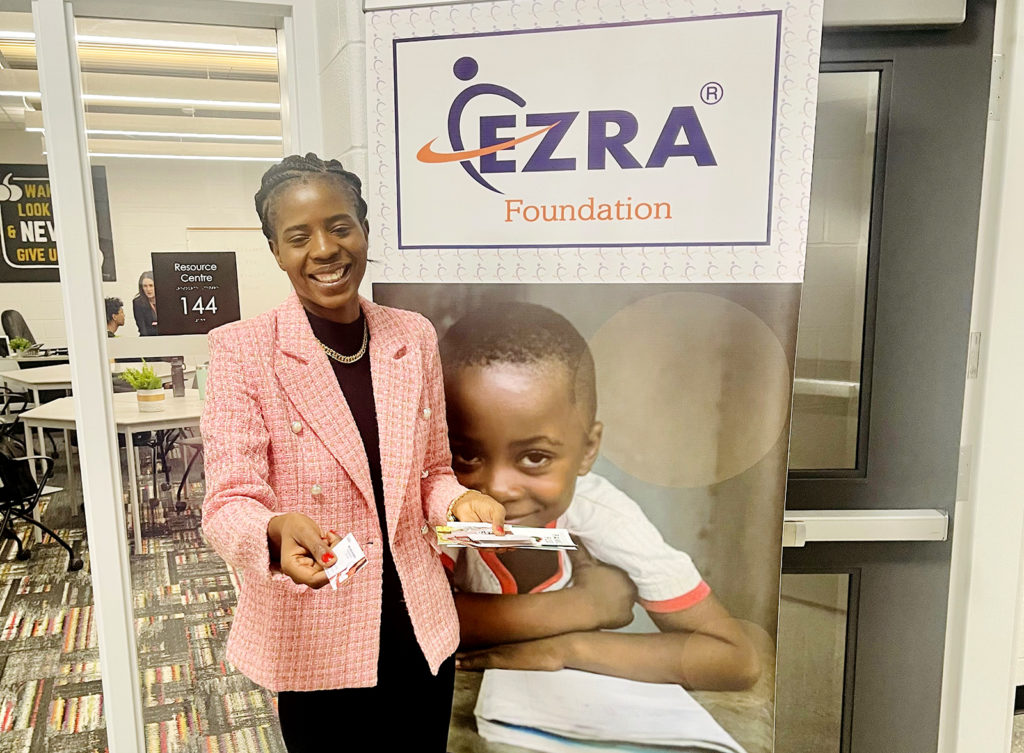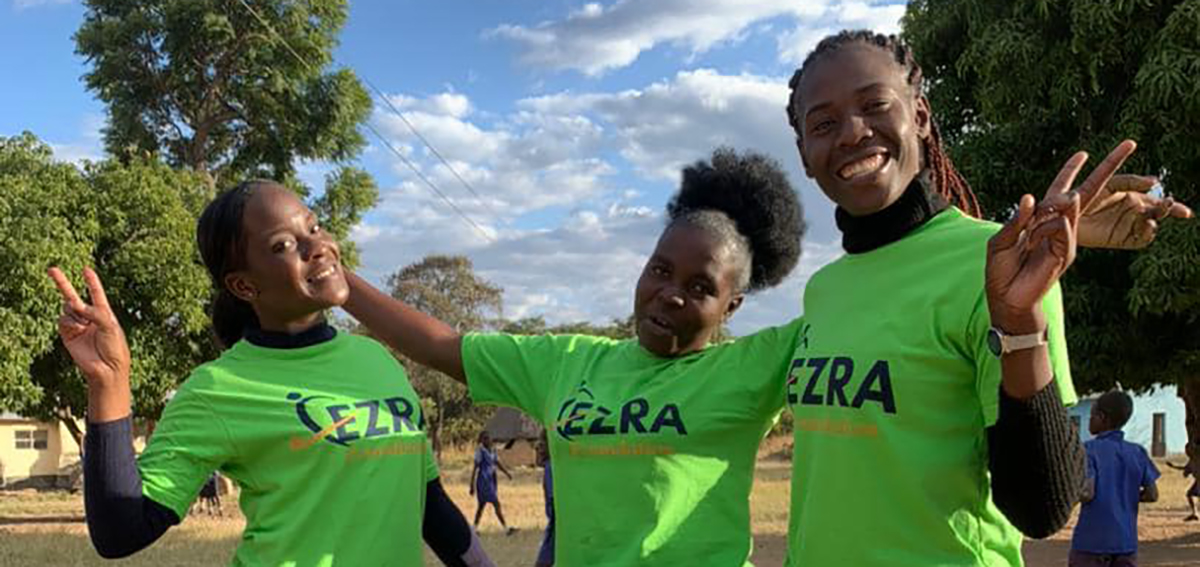Local Not-for-profit is Collecting Menstrual Products for Local Needs and for Rural Communities Abroad
Story by Alley L. Biniarz
Photography by John Liviero
Menstrual care is a much-needed service around the world, yet it’s one that is often overlooked or ignored. Ezra Foundation’s Melonia Munemo believes that can change and she says the movement starts at home.
“When I was in school, I did not have access to safe sanitary products. I didn’t know or talk about it with my grandma and even in school they didn’t teach us that subject,” Melonia explains her upbringing. Growing up in a village in Zimbabwe, she shares the stigma that was associated with having a period. Although, it’s not very different in other countries. “We have students from around the world who are not comfortable talking about it. The girls are shy or embarrassed because of different traditions; it’s a taboo topic in most cultures where it’s kept a secret.”
The recent campaign that she has launched through her not-for-profit, the Ezra Foundation, aims to raise sanitary products, or the money to purchase them, in order to donate them to rural communities in need. The focus on period products came from Melonia’s realization that this need hasn’t changed over the years; people still don’t have access to menstrual products because of shame or because of the financial barrier. Due to inflation and the cost of products, even fewer people can afford these much-needed products.

The idea behind the Ezra Foundation is to help people in rural communities with the tools that they need to attend, and stay, in school. They believe that education should be a right and opportunity for all, and that’s not true for many poor people in rural communities. Eliminating barriers to education has a positive impact on poverty, shelter, water, sanitation and promotes better healthcare and welfare. Last year, the Ezra Foundation donated computers to a rural school back in Zimbabwe but after that they realized the necessities can be more basic than that. A lack of menstrual products can be the difference between a girl gaining a lifetime of education or losing access around the age of 11.
The need for sanitary products is also seen right here in Windsor-Essex, Melonia explains. “When I first moved to Canada as a new immigrant, I would go to food banks and really need some of this stuff.” She understands the impact that these seemingly small donations can have on someone’s life and has seen it first hand at the women’s shelters and donation centres around Windsor. “I’ve noticed when I’ve gone around that the newcomers who are already trying to settle into a new community, and struggling with that, also need help with these basic necessities.”
Melonia’s initiative is done from the heart, and she doesn’t do it alone. Along with the amazing team of volunteers working behind-the-scenes at the Ezra Foundation, she has partnered with St. Michael’s Catholic Adult High School and Catholic Central High School to get the project off the ground. All donations can be dropped off at either school, while the students and teachers are also participating and creating fundraising opportunities.
“But we’re not only raising products and money, we’re raising awareness,” Melonia reminds us. Even in 2023, young people are struggling to get access to safe information about their bodies. Melonia believes that this drive starts from home, then it can move into the schools and ripple to the people around us. “Parents should be able to talk about reproductive health with their children of all genders and be more relaxed and open about the topic.” She adds that it’s especially important to include everyone in the discussion and not just speak openly with girls, because it affects everyone. “If a girl has her period and needs products but her mom is gone and she only has brothers and a dad at home, she needs to feel safe to ask them to go to the store for her.”
Melonia recognizes that it can be a sensitive topic and she specifically mentions religious sects. “I realize that in some cultures a girl on her period can’t go to church, and I know that’s still happening. We have to be more comfortable to educate our kids and it’s not just about them knowing about it, it’s about teaching them how they can take care of themselves and their reproductive health. We need to show them that it’s not taboo or an abomination, it’s normal.”

Although it’s easy to believe that this happens in other countries and not here, we still have a long way to go in terms of access to appropriate menstrual care and information. This is why women from around the world have resonated with this campaign and have been able to relate to the circumstances. By opening up the discussion, Melonia has received a greater response than she could have imagined. Still, they need help from the community through donations, awareness and conversation. “It was a dream for me to come to Canada. When I moved here, I felt indebted to my community and I always wanted to do something. In a way, this is how I can say thank you Canada, by giving back to the community I’m in now, while also remembering where I came from.”
There are thousands of people in need in our community and in rural communities around the world. Through this campaign you can donate funds, disposable sanitary products or reusable menstrual products to help protect the environment and health of others. If anyone would like to donate to this cause, you can send it through to Catholic Central High School or to St. Michaels Catholic Adult High School and address your donation to the Ezra Foundation. You can also learn more by visiting ezra4.com.




Add comment